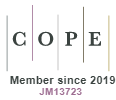A Better Approach to Generating Random Numbers
DOI:
https://doi.org/10.15415/mjis.2019.81005Keywords:
Random Number Generator, Pseudocode Random Number, True Random Number, Mid Square Method, Linear Congruential Method, Fibonacci Series, seed valueAbstract
The term random number has been used by many scholars to explain the behaviour of a stochastic system. Many of such scholars with statistical or mathematical background view it as an organized set of numbers produced by a function in a numerical way in which the next number to be produced is unknown or unpredictable. This paper produced software that generates a sequence of random number and also compared the algorithm with the commonly used method of random number generator. The three most common methods selected were the Mid Square method, Fibonacci method and Linear Congruential Generator Method (LCG). The result shows that the LCG provides a more acceptable result in terms of speed, long cycle, uniformity and independence Applications of this random numbers can be seen in Monte Carlo simulations, simulation or modelling, password generation, cryptography and online games.
Downloads
References
Almalki, S. J., Nadarajah, S.: Modifications of the Weibull distribution: a review. Reliab. Eng. Syst. Saf. 124, 32–55 (2014). doi: 10.1016/j.ress.2013.11.010
Bourguignon, M., Silva, R. B., Cordeiro, G. M.: A new class of fatigue life distributions. J. Stat. Comput. Simul. 27(12), 2619–2635 (2014). doi:10.1080/00949655.2013.799164
Gupta, R. D., Kundu, D.: Exponentiated exponential family; an alternative to gamma and Weibull. Biom. J. 43, 117–130 (2001). doi:10.1002/1521-4036(200102)43:1<117::aid-bimj117>3.0.co;2-r
Gupta, R. D., Kundu, D.: Generalized exponential distribution. Aust. N Z. J. Stat. 41(2), 173–188 (1999). doi: 10.1111/1467-842X.00072
Marcelo, B., Silva, R., Cordeiro, G.: The Weibull - G Family Probability Distributions. J. Data Sci., 12, 53–68 (2014). Google Scholar or Crossref.
Matheson, M., Cox, C.: The shape of the hazard function: Does the generalized gamma have the last word. Commun. Stat. Theory Methods 46(23),11657–11666 (2017). doi: 10.1080/03610926.2016.1277757
Nasiru, S., Luguterah, A.: The New Weibull-Pareto Distribution. Pakistan J. of Stat. and Oper. Res. 11(1), 103–114 (2016). doi: 10.1234/pjsor.v11i1.863
Nassar, M. M., Radwan, S. S., Elmasry, A. S.: The Exponential Modified Weibull Logistic Distribution (EMWL). EPH-Int. J. Math. Stat. 4(1), 22–38 (2018).
Nofal, Z. M., Afify, A. Z., Yousof, H. M., Cordeiro, G. M.: The generalized transmuted-G family of distributions. Commun. Stat. Theory Methods 46(8), 4119–4136 (2017). doi: 10.1080/03610926.2015.1078478
Rinne, H.: The Weibull distribution: A handbook. Chapman and Hall/CRC (2008). doi:10.1201/9781420087444
Ritsche, K., Smith, J., Mellick, P., Wideman, L.: Acute exercise-induced growth hormone is attenuated in response to short-term, high intensity exercise training. J. Exerc. Physiol. 17(6), 1–12 (2014). Google Scholar or Crossref
Wais, P.: Two and three-parameter Weibull distribution in available wind power analysis. Renewable energy 103, 15–29 (2017). doi: 10.1016/j.renene.2016.10.041
Weibull, W.: Wide applicability. J. appl. Mech. 40, 203–210 (1951). Google Scholar or Crossref.
Downloads
Published
How to Cite
Issue
Section
License
Articles in Mathematical Journal of Interdisciplinary Sciences (Math. J. Interdiscip. Sci.) by Chitkara University Publications are Open Access articles that are published with licensed under a Creative Commons Attribution- CC-BY 4.0 International License. Based on a work at https://mjis.chitkara.edu.in. This license permits one to use, remix, tweak and reproduction in any medium, even commercially provided one give credit for the original creation.
View Legal Code of the above mentioned license, https://creativecommons.org/licenses/by/4.0/legalcode
View Licence Deed here https://creativecommons.org/licenses/by/4.0/
 |
Mathematical Journal of Interdisciplinary Sciences by Chitkara University Publications is licensed under a Creative Commons Attribution 4.0 International License. Based on a work at https://mjis.chitkara.edu.in |









